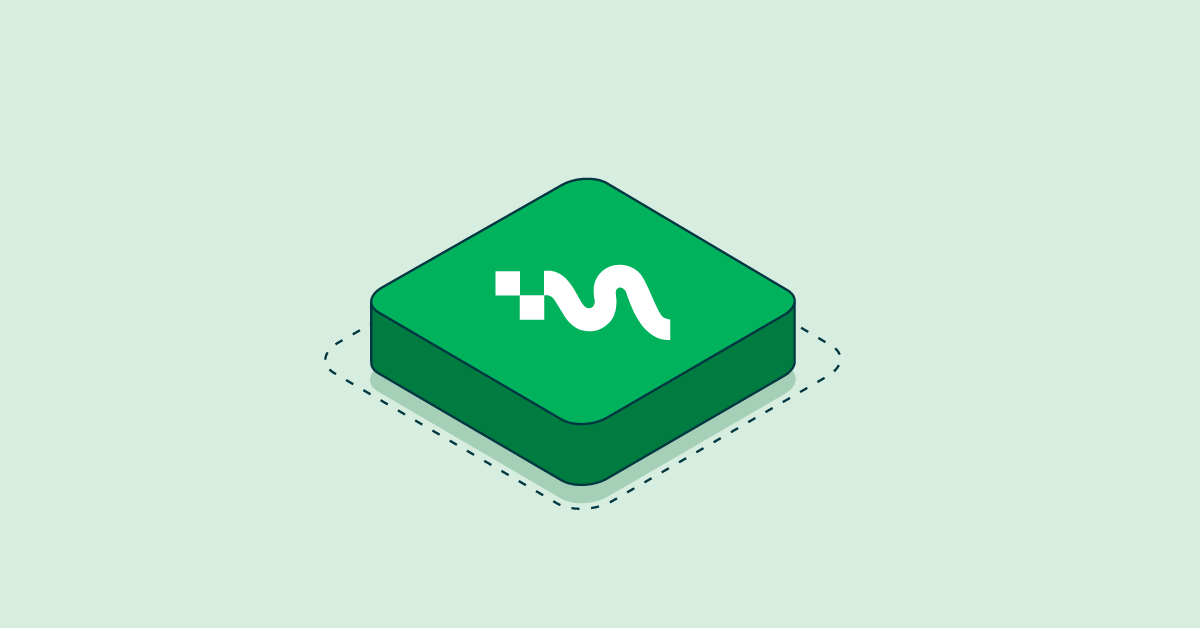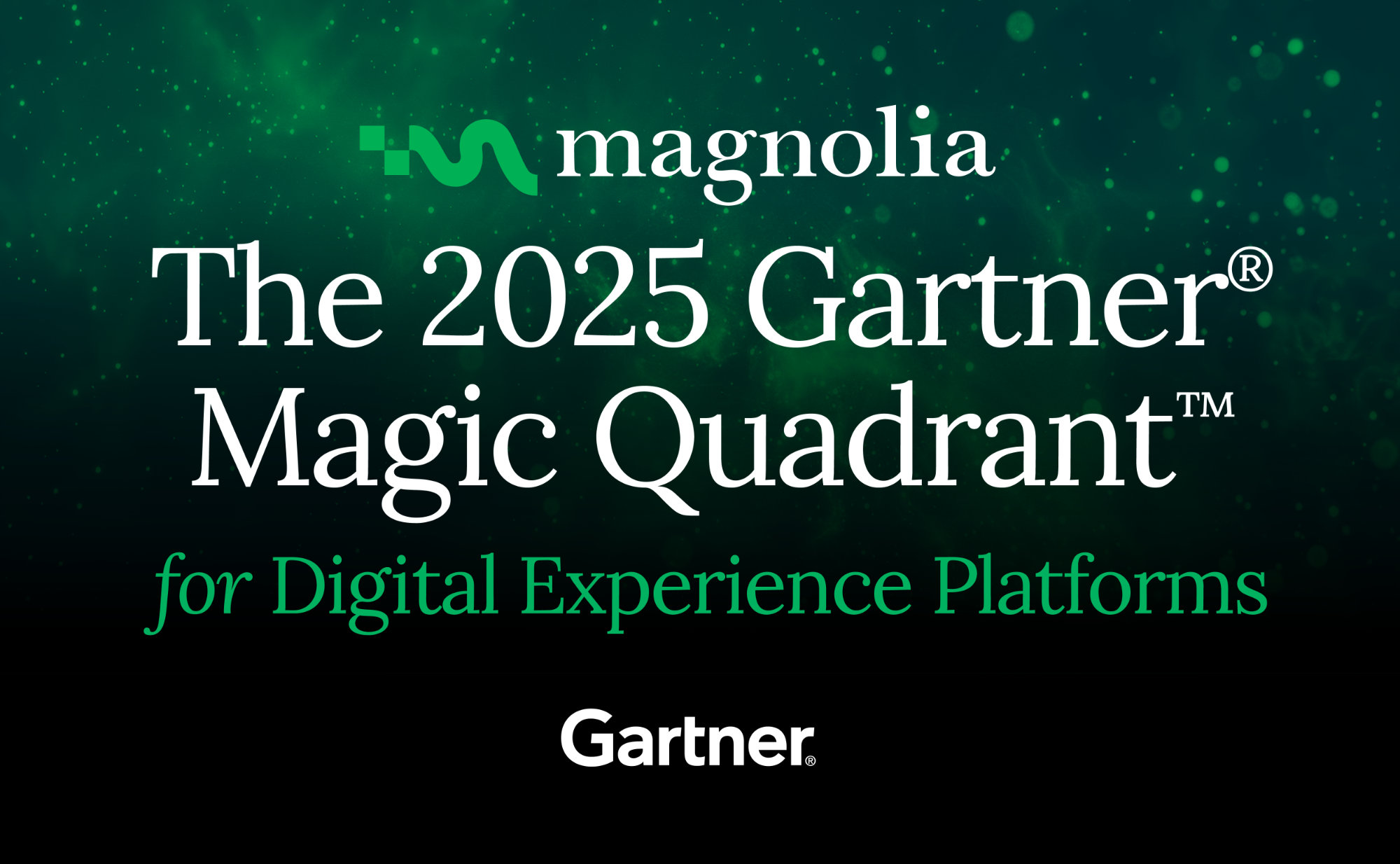- Jun 27, 2023
- 7 min
What should you know when choosing an ecommerce personalization platform?
Magnolia in action
Take 12 minutes and a coffee break to discover how Magnolia can elevate your digital experience.
As personalization becomes more prevalent, businesses that fail to adopt a personalization platform struggle to deliver relevant content to their loyal customers, leading to adverse outcomes like poor user experience, reduced customer satisfaction, inefficient marketing spend, difficulty in scaling, etc.
These businesses risk falling behind competitors who invested and adopted a suitable personalization platform to stay ahead of the curve and differentiate themselves from the competition. An Infosys study reveals that 59% of online shoppers who have experienced personalization believe it has a noticeable influence on purchasing.
Ecommerce personalization relates to the practices where an online store displays dynamic content based on customer profile, such as demographics, intent, preferences, browsing history, previous purchases, and device usage.
Furthermore, effective personalization can offer significant benefits to retailers and customers alike. However, addressing this approach's potential limitations and challenges is crucial.
Why is personalization important in ecommerce?
Increases customer satisfaction: By providing personalized recommendations and tailored email campaigns, effective personalization can enhance the overall customer experience, increasing satisfaction and loyalty.
Improves conversion rates: When customers are presented with relevant product recommendations and promotions, they are more likely to purchase, leading to increased conversion rates and revenue for the retailer.
Enhances customer engagement: Personalized ecommerce experiences can encourage customers to spend more time on a website, exploring new products and interacting with the brand, leading to increased customer engagement and brand awareness.
Competitive advantage: Personalized shopping experience and proper marketing campaigns can differentiate a brand from competitors, providing a competitive advantage in a crowded online marketplace.
Limitations of ecommerce personalization
Privacy concerns: Ecommerce personalization relies on collecting and analyzing customer data, which can raise privacy concerns and lead to customer distrust if not handled transparently and responsibly.
Limited data availability: Ecommerce personalization is effective when relevant customer data is available, which may be limited for new or infrequent customers.
Algorithmic bias: Personalization algorithms may inadvertently reinforce bias or discrimination, leading to unequal treatment of certain customers.
Implementation challenges: Ecommerce personalization can be technically challenging, requiring significant investment in data analytics and personalization software.
7 things B2B marketers need from an ecommerce CMS
B2B ecommerce now carries many of the same customer expectations as B2C ecommerce. But if you can’t blend content commerce correctly, you won’t meet those expectations. Find out the 7 things marketers need from an ecommerce CMS.
What is an ecommerce personalization platform?
Ecommerce personalization platforms are software solutions that allow businesses to deliver personalized online shopping experiences to their customers. These platforms typically consist of personalization tools that collect and analyze customer behavior, interests, and preferences and use this information to create customized experiences for individual customers.
Examples of personalization platforms
Many personalization platforms are available in the market; below are a few personalization platforms and a brief overview of their features:
Dynamic Yield is a personalization solution platform that offers real-time personalization capabilities across web, mobile, and email channels. It offers AI-powered targeting and segmentation, as well as advanced testing and optimization capabilities.
Monetate is a personalization platform that enables marketers to deliver personalized experiences across web, mobile devices, and email channels. It offers advanced testing and optimization capabilities, including A/B and multivariate testing.
RichRelevance is a personalization platform that offers real-time personalization capabilities across web, mobile, and email channels. It offers AI-powered targeting and segmentation, as well as advanced testing and optimization capabilities.
Barilliance is a personalization platform that offers advanced targeting and segmentation capabilities, as well as product recommendations and A/B testing in real-time.
Emarsys is a personalization platform that offers real-time personalization capabilities across web, mobile, and email channels. It offers advanced targeting and segmentation capabilities, AI-powered product recommendations, and behavioral analytics.
Each of the above platforms offers unique features and capabilities, and the best choice for a business depends on its specific needs and goals.
Personalization with Magnolia
Magnolia balances personalization and privacy and combines algorithmic insights with human intuition by integrating with platforms like Fresh Relevance or Dynamic Yield (as part of a composable DXP for commerce architecture). Ecommerce companies can then create personalized ecommerce experiences that are truly valuable and can go across websites and multiple other channels (like apps, emails, point-of-sale, etc.).
It also allows marketing teams to create personalized experiences for their target audience by tailoring content, offers, and recommendations based on user behavior, preferences, and demographics, in a WYSIWYG (What You See Is What You Get) high-fidelity visual environment.
What can Magnolia personalization do for you?
Create relevant experiences:
Here, Magnolia personalizes experiences for visitor segments based on who they are, how they behave, and what's happening in the world. Magnolia unifies and leverages your data to tailor your website and other digital channels to meet your customer expectations, improving their experience and increasing conversion and customer engagement.
Personalize any channel at scale:
Magnolia enables omnichannel personalization and optimization without compromising performance. Deliver user personalized experiences from Magnolia or consume personalized content via our APIs, enabling headless personalization in any front end.
Test, analyze, and optimize:
Magnolia offers personalization and A/B/n testing out of the box and simplifies third-party data integration. It brings together content, analytics, and customer base data on a single screen and creates personalized and optimized experiences that increase customer retention.
Magnolia's (out of the box) personalization capabilities and extensions
Magnolia provides powerful personalization capabilities that enable you to deliver relevant content and digital experiences to your users, not just that they go more in-depth with extensions for advanced features.
Creating content variants (either at the component or entire page level). The variants can be configured entirely differently in terms of copies or images.
Choosing the audience for each variant, using Magnolia default traits (such as Country or Visitor) or traits defined in external personalization tools.
Segmentation
Magnolia allows you to create segments of users based on various criteria such as location, interests, user behavior, and more. Magnolia also integrates with Segment as a leading Customer Data Platform. Segment allows you to track and collect customer data (through events) and send that data to Magnolia (as personalization traits).
A/B testing
Magnolia allows you to conduct A/B testing to optimize your content and personalization strategy. With the help of Magnolia's native A/B/n Testing feature, you can test different versions of content, messaging, and offers to determine what works best for individual user segments and bring clarity to your digital campaigns.
Analytics
Magnolia provides detailed analytics and reporting capabilities to help you track the performance of your personalization efforts. To refine your personalization strategy, you can analyze user behavior, customer interaction and engagement, and conversion rates.
Content Recommender
This extension provides relevant content based on the entire customer’s journey in real-time. It allows for assigning scores based on page visits or how users interact with your content, such as clicking links or playing media. Learn more about this extension.
Advanced Personalization
The Advanced Personalization extension provides a more flexible way of defining business rules for matching page and component variations to a request using expressions.
The solution allows for more complex targeting and potentially fewer variants to manage.
Image Focal
The Image Focal extension allows you to associate images with focal point data for more effective cropping amongst different devices and screen sizes.
With the Image Focal extension, your visitors always get the best view of your images, no matter their device or screen resolution.
Knowing that a reputable company has already used and benefited from a certain platform encourages you to do the same; look at how Alior Bank boosted their online sales with Magnolia.
To learn more about personalization with Magnolia, check out our in-depth personalization demo video, or ask our team for a demo tailored to your needs.

.png)







